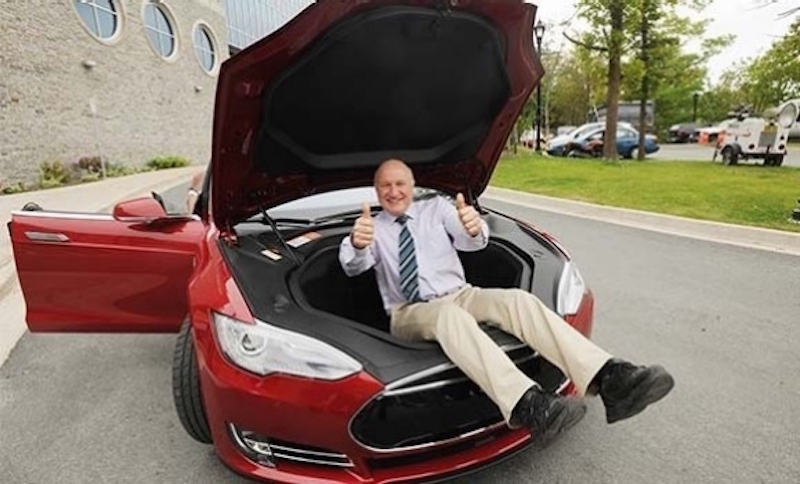
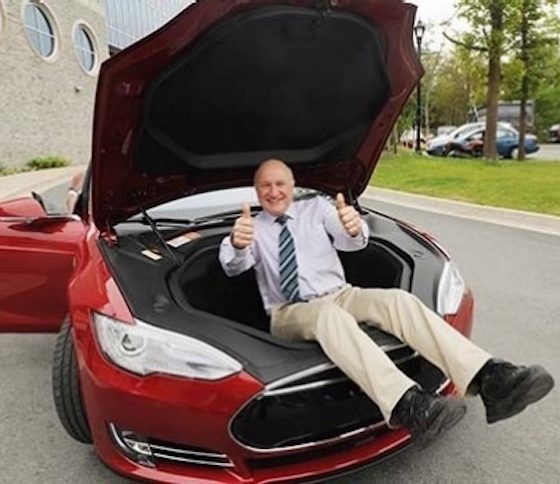
Energy
Tesla donates $3.1M of $6M grant to Jeff Dahn’s Dalhousie University battery team
A team of battery researchers at Canada’s Dalhousie University are the recipients of a $6 million grant from the Natural Sciences and Engineering Research Council (NSERC). The NSERC will give the team, headed by Dr. Jeff Dahn, $2.9 million in funding. Tesla, who has worked very closely with Dahn’s team, will also contribute an additional $3.1 million to help develop advanced batteries from electric cars and grid energy storage.
Dahn and Tesla have worked together since 2016 when the two signed a five-year partnership to improve energy density and the life cycle of lithium-ion batteries. Tesla and Dahn signed another five-year contract earlier this year. Dahn has worked with batteries for around 40 years and has published over 700 papers related to battery technology.
Dahn has even been listed as an author on several Tesla battery patents, including one for an electrolyte solution that could be added to lithium-ion cells to extend longevity and increase performance.
Tesla renews contract with Jeff Dahn’s battery team at Dalhousie University
Dalhousie University expanded its team in January upon the five-year extension with Tesla. The institution added Dr. Chongyin Yang as the Tesla Canada Chair and Dr. Michael Metzger as the Herzberg-Dahn Chair to supplement Dahn’s experience and ensure that Dalhousie remains a global force in battery tech advancements.
The $6 million in funding will be used for several new projects that include:
- Lowering the costs of batteries for electric vehicles and electrical energy storage applications
- Increasing the lifetime of batteries for electric vehicles and electrical energy storage applications
- Increasing the energy density of batteries for electric vehicles and electrical energy storage applications
- Maintaining and improving the safety of batteries for electric vehicles and electrical energy storage applications
- Increasing the content of sustainable materials in the batteries
If Dahn’s team of researchers at Dalhousie University can achieve these goals, it would not only revolutionize EV and energy storage batteries but would also make renewable energy and Earth-friendly transportation more accessible and affordable.
Dahn spoke highly of the funding and was very appreciative of the grant that will catalyze the opportunity for more battery research. “I am very grateful for this funding from NSERC and Tesla,” Dahn said. “This will allow Chongyin, Michael, and me to solve many remaining puzzles that will help improve battery lifetime and lower cost. The students trained in this program are finding, and will continue to find, immediate employment in the advanced battery sector locally and around the world. Tesla is a wonderful partner and a world leader in electric vehicle, solar, and electrical energy storage products. We share their commitment to help combat climate change through electrified transportation and renewable energy generation and storage.”
Tesla and Dahn are contractually tied until 2026.
“With a distinguished career in innovative thinking, fundamental science, and strong industry partnerships, Dr. Jeff Dahn exemplifies research excellence,” Dr. Alice Aiken, Vice President of Research and Innovation at Dalhousie, said. “And we are incredibly fortunate to have two world-class scientists like Dr. Chongyin Yang and Dr. Michael Metzger join Dalhousie University and the exclusive partnership with Tesla.”
Tesla also showed its excitement for the Dalhousie team. “We are thrilled for our work with Dalhousie, Dr. Jeff Dahn, Dr. Chongyin Yang and Dr. Michael Metzger,” Tesla said in a statement. “We are excited and look forward to their important contributions in battery technology to help achieve our mission.”
What do you think? Let us know in the comments below, or be sure to email me at joey@teslarati.com or on Twitter @KlenderJoey.

Energy
Tesla Megapack Megafactory in Texas advances with major property sale
Stream Realty Partners announced the sale of Buildings 9 and 10 at the Empire West industrial park, which total 1,655,523 square feet.
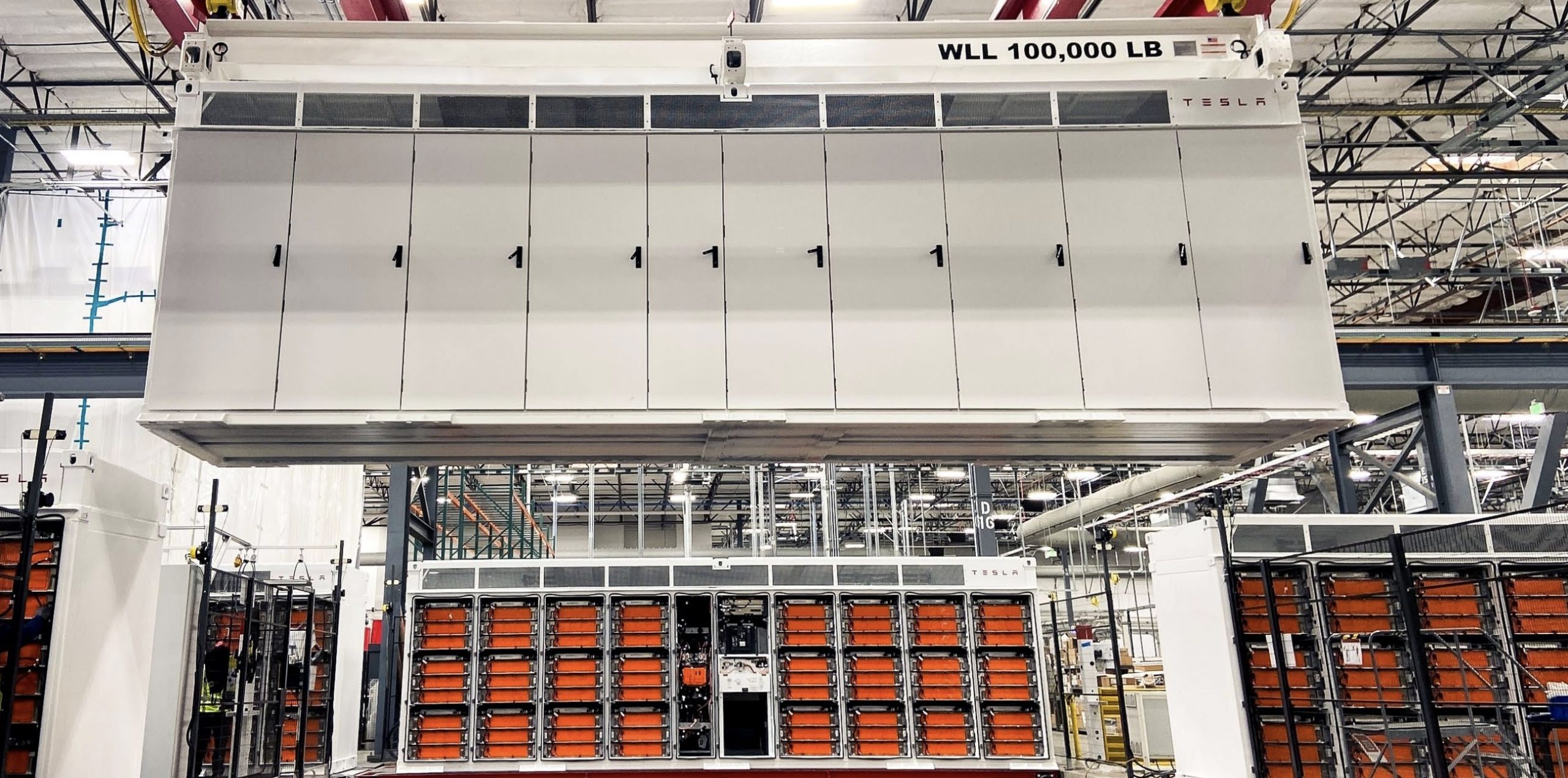
Tesla’s planned Megapack factory in Brookshire, Texas has taken a significant step forward, as two massive industrial buildings fully leased to the company were sold to an institutional investor.
In a press release, Stream Realty Partners announced the sale of Buildings 9 and 10 at the Empire West industrial park, which total 1,655,523 square feet. The properties are 100% leased to Tesla under a long-term agreement and were acquired by BGO on behalf of an institutional investor.
The two facilities, located at 100 Empire Boulevard in Brookshire, Texas, will serve as Tesla’s new Megafactory dedicated to manufacturing Megapack battery systems.
According to local filings previously reported, Tesla plans to invest nearly $200 million into the site. The investment includes approximately $44 million in facility upgrades such as electrical, utility, and HVAC improvements, along with roughly $150 million in manufacturing equipment.
Building 9, spanning roughly 1 million square feet, will function as the primary manufacturing floor where Megapacks are assembled. Building 10, covering approximately 600,000 square feet, will be dedicated to warehousing and logistics operations, supporting storage and distribution of completed battery systems.
Waller County Commissioners have approved a 10-year tax abatement agreement with Tesla, offering up to a 60% property-tax reduction if the company meets hiring and investment targets. Tesla has committed to employing at least 375 people by the end of 2026, increasing to 1,500 by the end of 2028, as noted in an Austin County News Online report.
The Brookshire Megafactory will complement Tesla’s Lathrop Megafactory in California and expand U.S. production capacity for the utility-scale energy storage unit. Megapacks are designed to support grid stabilization and renewable-energy integration, a segment that has become one of Tesla’s fastest-growing businesses.
Energy
Tesla meets Giga New York’s Buffalo job target amid political pressures
Giga New York reported more than 3,460 statewide jobs at the end of 2025, meeting the benchmark tied to its dollar-a-year lease.
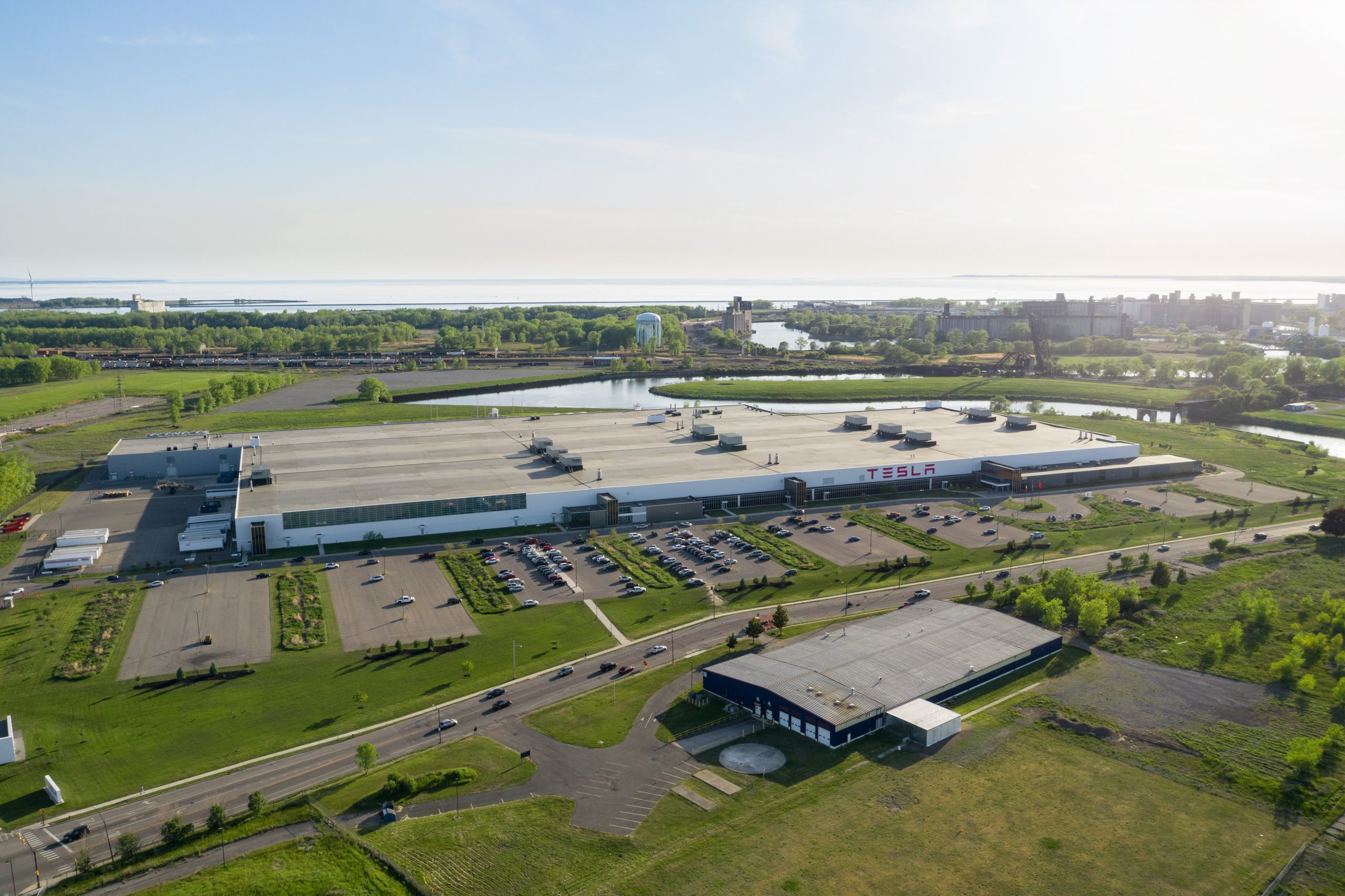
Tesla has surpassed its job commitments at Giga New York in Buffalo, easing pressure from lawmakers who threatened the company with fines, subsidy clawbacks, and dealership license revocations last year.
The company reported more than 3,460 statewide jobs at the end of 2025, meeting the benchmark tied to its dollar-a-year lease at the state-built facility.
As per an employment report reviewed by local media, Tesla employed 2,399 full-time workers at Gigafactory New York and 1,060 additional employees across the state at the end of 2025. Part-time roles pushed the total headcount of Tesla’s New York staff above the 3,460-job target.
The gains stemmed in part from a new Long Island service center, a Buffalo warehouse, and additional showrooms in White Plains and Staten Island. Tesla also said it has invested $350 million in supercomputing infrastructure at the site and has begun manufacturing solar panels.
Empire State Development CEO Hope Knight said the agency was “very happy” with Giga New York’s progress, as noted in a WXXI report. The current lease runs through 2029, and negotiations over updated terms have included potential adjustments to job requirements and future rent payments.
Some lawmakers remain skeptical, however. Assemblymember Pat Burke questioned whether the reported job figures have been fully verified. State Sen. Patricia Fahy has also continued to sponsor legislation that would revoke Tesla’s company-owned dealership licenses in New York. John Kaehny of Reinvent Albany has argued that the project has not delivered the manufacturing impact originally promised as well.
Knight, for her part, maintained that Empire State Development has been making the best of a difficult situation.
“(Empire State Development) has tried to make the best of a very difficult situation. There hasn’t been another use that has come forward that would replace this one, and so to the extent that we’re in this place, the fact that 2,000 families at (Giga New York) are being supported through the activity of this employer. It’s the best that we can have happen,” the CEO noted.
Energy
Tesla launches Cybertruck vehicle-to-grid program in Texas
The initiative was announced by the official Tesla Energy account on social media platform X.
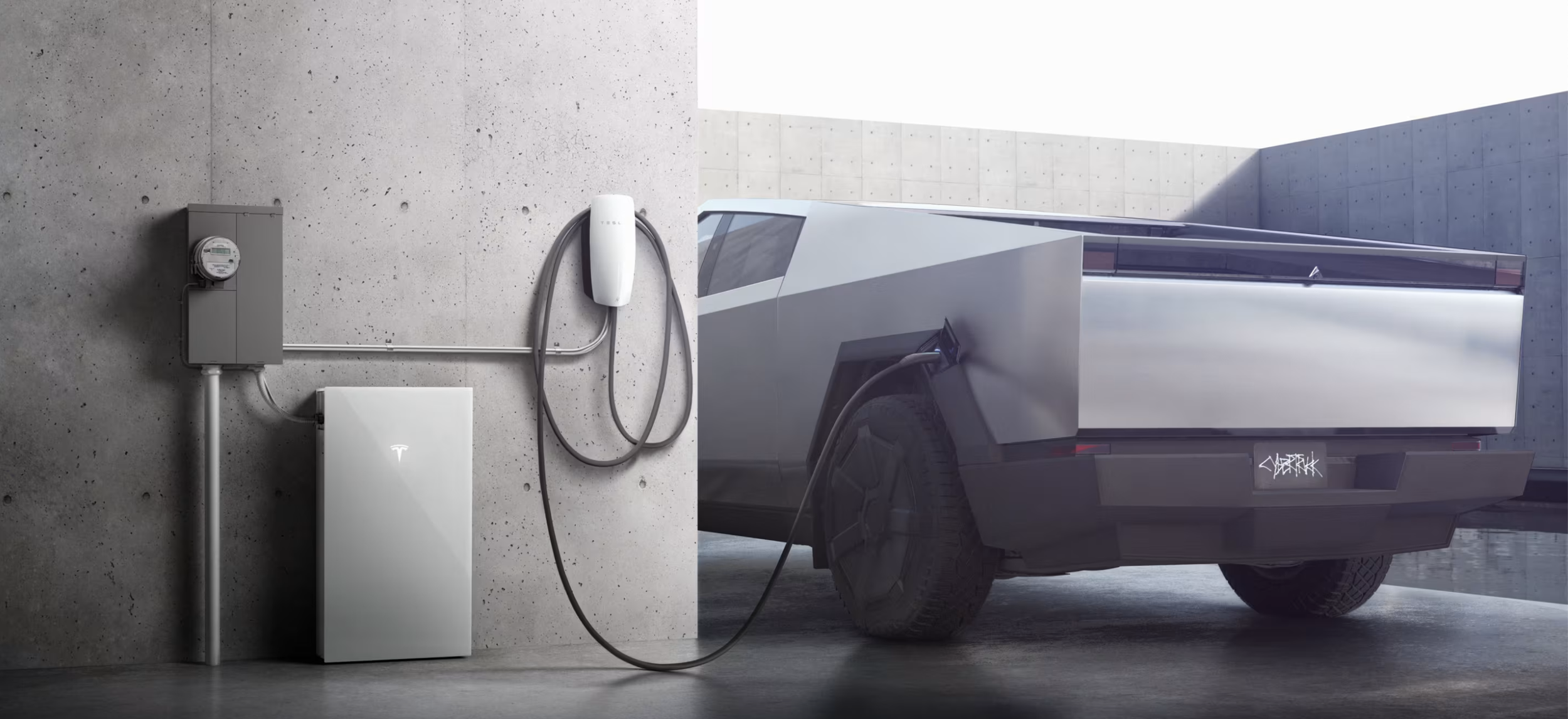
Tesla has launched a vehicle-to-grid (V2G) program in Texas, allowing eligible Cybertruck owners to send energy back to the grid during high-demand events and receive compensation on their utility bills.
The initiative, dubbed Powershare Grid Support, was announced by the official Tesla Energy account on social media platform X.
Texas’ Cybertruck V2G program
In its post on X, Tesla Energy confirmed that vehicle-to-grid functionality is “coming soon,” starting with select Texas markets. Under the new Powershare Grid Support program, owners of the Cybertruck equipped with Powershare home backup hardware can opt in through the Tesla app and participate in short-notice grid stress events.
During these events, the Cybertruck automatically discharges excess energy back to the grid, supporting local utilities such as CenterPoint Energy and Oncor. In return, participants receive compensation in the form of bill credits. Tesla noted that the program is currently invitation-only as part of an early adopter rollout.
The launch builds on the Cybertruck’s existing Powershare capability, which allows the vehicle to provide up to 11.5 kW of power for home backup. Tesla added that the program is expected to expand to California next, with eligibility tied to utilities such as PG&E, SCE, and SDG&E.
Powershare Grid Support
To participate in Texas, Cybertruck owners must live in areas served by CenterPoint Energy or Oncor, have Powershare equipment installed, enroll in the Tesla Electric Drive plan, and opt in through the Tesla app. Once enrolled, vehicles would be able to contribute power during high-demand events, helping stabilize the grid.
Tesla noted that events may occur with little notice, so participants are encouraged to keep their Cybertrucks plugged in when at home and to manage their discharge limits based on personal needs. Compensation varies depending on the electricity plan, similar to how Powerwall owners in some regions have earned substantial credits by participating in Virtual Power Plant (VPP) programs.








